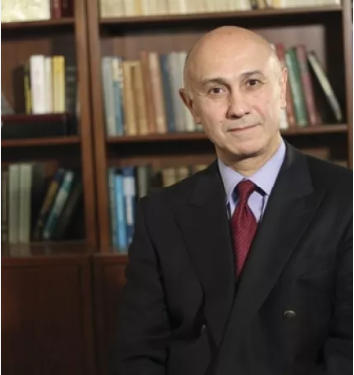Energy Diplomacy in the Gulf: Systems Thinking for Leaders
The Challenge: Where Energy Meets Diplomacy
“Water is the origin”, and I believe energy is the enabler of all living things.
The Gulf region stands at a critical juncture. Climate change, technological advancement, and geopolitical shifts are reshaping the energy landscape. Leaders who can bridge technical expertise with diplomatic acumen will determine whether these changes lead to cooperation or conflict. In an era where a single technological failure can affect millions of lives and billions of dollars in global commerce, the ability to think systemically and act diplomatically isn’t just valuable, it’s essential.
The Persian Gulf represents one of the world’s most complex energy ecosystems – a delicate convergence of water, energy, and food security that powers global commerce while sustaining regional life. This shallow, semi-enclosed sea hosts the world’s most concentrated collection of safety-critical industries: upstream oil and gas operations, downstream refining facilities, nuclear power stations, desalination plants, and the arteries of international shipping.
Yet with great power comes great vulnerability. The 2010 BP Deepwater Horizon disaster (claiming 11 lives, releasing 171 million gallons of crude oil, and costing $65 billion) demonstrated how technological failures can cascade across borders. The 2011 Fukushima Daiichi nuclear accident further revealed the interconnected nature of modern energy systems and their potential for regional and global impact.
Both disasters exposed critical breakdowns in human-organizational-technological (HOT) subsystems. Today’s Gulf leaders face similar challenges on an even more complex scale, where technological failures can trigger cascading consequences across multiple nations and ecosystems.
This three day intensive, interdisciplinary practicum combines systems thinking, technical analysis, and diplomatic strategy through an interactive learning experience. Each day features morning lectures followed by hands-on case studies, group exercises, and strategic roundtable discussions.
By the end of this course, participants will develop the ability to:
- Analyze complex technological systems using systems thinking methodologies
- Navigate the human-organizational-technological subsystems of major energy projects
- Apply both Track I and Track II diplomacy approaches to regional challenges
- Design collaborative solutions that address technical, political, and cultural considerations
Who Should Attend
- Technical Leaders seeking to expand their strategic perspective
- Senior Engineers working on regional energy projects
- Government Officials and policymakers in energy and environmental sectors
- Corporate Executives in Gulf energy industries
- Regional Security Specialists addressing transnational challenges
- International Relations Professionals focusing on energy security
| Program Fees |
|---|
| Price for the three day course: USD 3,000* Contact Zaubash Shakir at zs150@georgetown.edu for more information on the course. *Discounts available on single course registration for corporate groups and QF Alumni. |
About the Instructor
Dr. Najmedin Meshkati is a globally recognized expert in safety, human factors, and the risk management of complex technological systems. A tenured professor at the University of Southern California (USC), he holds appointments in Civil/Environmental Engineering, Industrial & Systems Engineering, and International Relations. With over four decades of teaching and research experience, he is deeply committed to advancing safety in high-risk industries including nuclear power, aviation, and petrochemicals.

Dr. Meshkati has served in prestigious advisory roles, including as a Jefferson Science Fellow at the U.S. State Department and as a member of national panels investigating major disasters such as the Fukushima nuclear accident and the Deepwater Horizon oil spill. He was recently appointed to the FAA Expert Panel reviewing Boeing’s safety culture and serves on the Diablo Canyon Independent Safety Committee.
A passionate educator and mentor, he has taught in USC’s renowned Aviation Safety and Security Program for over 30 years and received numerous awards for excellence in teaching and service. He is a Fellow of the Human Factors and Ergonomics Society (HFES) and was named a “Titan of HFES” for his lifetime contributions.
Dr. Meshkati is also an accomplished author and international speaker whose work has shaped safety policy and human performance practices around the world. He earned his Ph.D. in Industrial and Systems Engineering from USC and holds dual undergraduate degrees in Industrial Engineering and Political Science.
